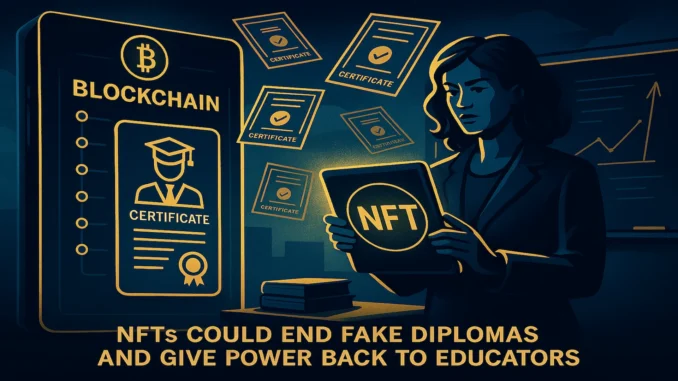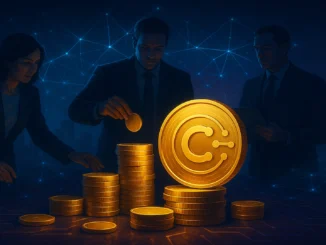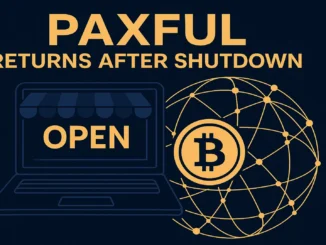
The problem of fake credentials in education
Fake diplomas continue to plague the global education system. A recent Washington Post report revealed that around 2,800 individuals in the United States obtained fraudulent nursing credentials without attending accredited classes. Each year, an estimated 100,000 fake degrees are sold by diploma mills, often for as little as $1,000.
This persistent issue undermines public trust in legitimate institutions and devalues real academic achievements. To solve it, experts are looking toward blockchain technology and nonfungible tokens (NFTs).
NFTs as a safeguard for academic integrity
Beau Brannan, a professor at Pepperdine University, has advocated for the use of NFTs in education since 2021. He believes that placing academic records on an immutable blockchain can provide a transparent and verifiable record of every completed course.
“If individual courses become part of the student ledger, it creates another level of accountability for the school and teacher,” Brannan told Cointelegraph.
This approach would make it impossible to falsify degrees and would let employers verify educational histories instantly. NFTs tied to coursework or certifications could transform degrees into transparent, tamper-proof digital assets.
Overcoming the barriers to adoption
Despite the promise of blockchain verification, integrating NFTs into education remains a challenge. According to Binance NFT’s team, mass adoption would require significant technical literacy and infrastructure upgrades across schools and universities.
Introducing NFTs in the academic world means updating outdated systems, training faculty, and re-educating administrators about blockchain’s benefits. Yet, as Binance noted, when the right incentives are in place, technological transitions often accelerate faster than expected.
Empowering educators through decentralization
Beyond verification, NFTs may also help solve another long-standing issue — undervalued teachers. Open Campus, a community-led protocol, aims to decentralize educational content and reward educators through Publisher NFTs.
TinyTap CEO and Open Campus council member Yogev Shelly explained that these NFTs generate ongoing revenue for educators: “They empower teachers and creators to freely build knowledge repositories and receive a fair share of the value they create.”
The initiative reflects a broader Web3 trend — returning ownership to creators. By allowing educators to tokenize their lessons, blockchain offers new models for funding, royalties, and global accessibility.
The future of blockchain in education
Blockchain-based credentialing could redefine how societies value education. Instead of centralized degree systems, students could build verifiable, lifelong learning portfolios. Teachers could monetize and share their work globally, supported by transparent smart contracts.
While the road to adoption will be complex, the combination of NFTs, decentralized learning platforms, and blockchain-verified records could finally restore credibility to education — and dignity to those who teach it.


